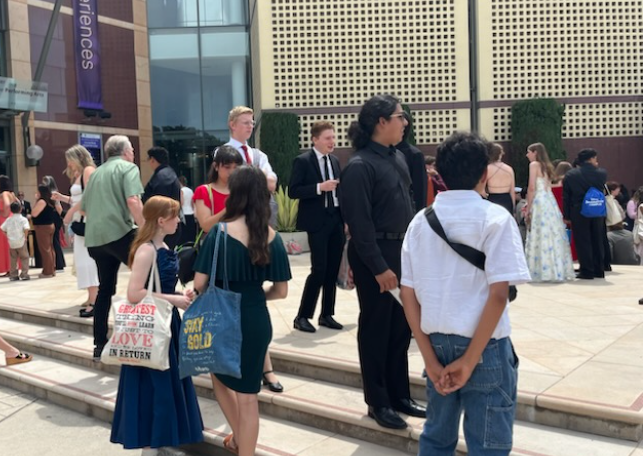Ninety-two years.
That’s how long The Academy Awards have been awarding Oscars to prestigious movies and directors in the film industry. And for that amount of time, only films of the English language have been gifted with the coveted “Best Picture” title.
As our society has made gains in racial relations, the Academy Awards continued to fall behind the times, sparking controversy over the lack of cultural diversity toward an award that attempts to represent cinema on a global level.
Many foreign films were close to receiving such a title, ranging from nominations like the 2000 Chinese drama, “Crouching Tiger, Hidden Dragon,” or the 1998 Italian film, “Life is Beautiful.” Despite such nominations, the “Best Picture” award remained English-only.
But that all changed when director Bong Joon-Ho (“Okja”) made history by capturing the elusive “Best Picture” award Feb. 9 with Bong’s masterpiece of a film, “Parasite” — the first time a non-English-speaking film has received such an accolade.
.
After watching the satirical thriller for the first time in theaters last December, I couldn’t help but admire Bong’s exemplary incorporation of suspense, clever integration of motifs and innovative manipulation of plot. “Parasite,” just like its name suggests, had literally taken over me, and although I had only seen “Joker” out of the remaining eight nominations, I was convinced that “Parasite” was the best candidate to win “Best Picture.”
Get this film an Oscar! I subconsciously thought while exiting the theater back in December.
Then reality hit me; If I was not Korean, I probably would have never discovered such an amazing film. I had only watched “Parasite” because of my mom, who was a big fan of the movie’s director, as well as through my friends who had heard of the film from their Korean parents.
Although I could understand the movie without reading the subtitles, I was doubtful that the Academy would ever recognize a film that a majority of American audiences have never heard of — would have been unable to understand without subtitles. The film had an Oscar-worthy screenplay yet lacked an Oscar-worthy appeal to English speakers.
“Parasite” was like an oasis in the middle of a desert: rich and beautiful, yet cast away by the blinding sandstorm that is foreign discrimination.
So when my phone started blowing up on Oscar night, I could hardly believe the messages I was receiving from friends and family.
“You guys, ‘Parasite’ just won Best Picture!” one of my Sunny Hills classmates’ messages read.
I was in complete shock. When I went downstairs to my living room, I witnessed my mom and dad crowding around an iPad and watching a livestream of the Academy Awards. And sure enough, I saw Bong standing alongside his “Parasite” cast, triumphantly holding a golden Oscar.
That night, our family enjoyed hearty kimchi stew and traditional Korean glass noodles, celebrating such a cultural accolade by eating Korean food.
Bong’s proving to Americans that Hollywood isn’t the only place on Earth that makes excellent movies is a belief that should have been established decades ago. But I’m still happy that it happened now.
I’m ecstatic for what the future holds for not just my culture’s appeal to American audiences, but for all foreign films looking to impress cinema-lovers on a global scale.
“Parasite” has implanted the idea of cultural acceptance in Hollywood, and as a result, I’m positive that people, rather than shying away from unfamiliar languages, will instead embrace such differences to truly appreciate a film for what it is, rather than whether they can understand it.
Even though Bong’s win has inadvertently put a lot of pressure on the South Korean film industry to produce the next “Parasite,” I am confident that my homeland will live up to such high expectations and that other inspiring pieces of cinema will follow in winning “Best Picture.”
So with the impact that Bong has left on the American film industry, I’ll be tracking the director’s next big project and celebrating when he wins his second Oscar.










![Abigail Veyna (left), who plays Charlotte Lucas — a friend of the female lead — talks to senior Kathleen Handley, who plays one of the main characters, Elizabeth Bennet, during their fourth-period rehearsal of the stage version of Jane Austen’s classic novel, Pride and Prejudice on Friday, April 25, in the Performing Arts Center [PAC]. The two-hour-and-15-minute play consisting solely of theater students will debut tonight at 7 in the PAC.](https://shhsaccolade.com/wp-content/uploads/2025/05/IMG_3087-1200x800.jpg)




